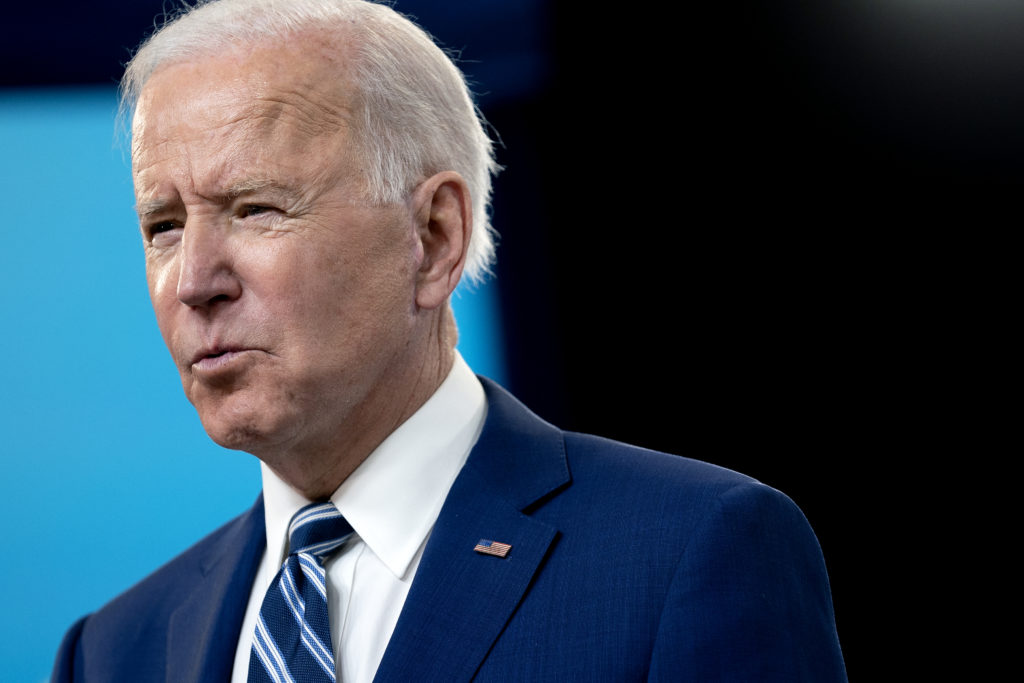President Joe Biden told Kremlin leader Vladimir Putin the United States stood by its “unwavering” support for Ukraine in defending its territory against a build-up by Russian troops, but NATO’s role in the region – and Ukraine’s drive to secure membership of the Alliance — stood out as key factors in skyrocketing tension between the superpowers.
Russian officials said the military deployment on their neighbour’s border sought to face down what they saw as threats from NATO and told U.S. warships to stay away. A Russian deputy foreign minister injected fresh animosity into superpower dialogue less than three months into Biden’s tenure, describing the United States as an “adversary”.
In Brussels, Ukrainian Foreign Minister Dmytro Kuleba lobbied hard for due consideration of Kyiv as a member of the Atlantic Alliance – a development that would be viewed as anathema in Moscow.
Both NATO Secretary General Jens Stoltenberg and U.S. Secretary of State Antony Blinken offered Ukraine support in confronting the Russian deployment, but it was no means certain whether considering NATO membership for Ukraine was part of any diplomatic agenda.
In Kyiv, a top security official dismissed Russian suggestions that Ukraine risked sparking a conflagration by using force to regain control over two “people’s republics” proclaimed by the separatists. Some 14,000 have died since 2014 in what Moscow says is a civil war gripping Ukraine and border areas in the Donbass region have seen an upsurge of armed skirmishes in recent weeks.
Ukrainian President Volodymyr Zelensky, a former television comic who came to office in 2019 saying that ending the conflict would require merely “stopping the shooting”, has since adopted ever-tougher positions. Earlier this month, he said NATO membership was “the only way to stop the conflict in Donbass”.
Call to de-escalate tensions
White House accounts of the conversation between the Russian and U.S. presidents said Biden wanted a “stable and predictable” relationship with Moscow but made clear Washington would “act firmly in defense of its national interests in response to Russia’s actions”.
“President Biden emphasised the United States’ unwavering commitment to Ukraine’s sovereignty and territorial integrity,” the White House said, saying the president had called on Moscow to “de-escalate tensions” and proposed a meeting with Putin in a third country
Russian officials were having none of it.
In the past three weeks, the Russian military has deployed two armies and three airborne formations to western regions “as a response to the (NATO) alliance’s military activities threatening Russia,” Defence Minister Sergei Shoigu told military commanders.
“The troops have shown their full readiness to fulfil tasks to ensure the country’s security,” he said. The manoeuvres would last another two weeks.
Russia tells U.S. ships to stay clear
With two U.S. warships due to arrive in the Black Sea this week in response to the build-up, Deputy Foreign Minister Sergei Ryabkov was even blunter.
“The United States is our adversary and does everything it can to undermine Russia’s position on the world stage,” Russian news agencies quoted Ryabkov as saying.
“We warn the United States that it will be better for them to stay far away from Crimea and our Black Sea coast,” Ryabkov said. “It will be for their own good. He called the U.S. deployment a provocation designed to test Russian nerves.
In Brussels, Stoltenberg described the Russian military movements as the largest concentration of troops near Ukraine since 2014. They were, he said, “unjustified, unexplained and deeply concerning.”
But it was far from clear whether Ukrainian requests for new sanctions or more sophisticated military equipment would be heeded.
“The Russian build-up is taking place not only along the border of Ukraine, but along the border of the democratic world,” Kuleba said before meeting Blinken. “This is the struggle that is taking place between democracies and authoritarianism.”
The issue of NATO membership has been under discussion in Ukraine since the election in 2004 of pro-Western President Viktor Yushchenko – but Russia’s vehement opposition and uncertain support for membership in Ukraine itself have left the idea in limbo.
Support for NATO membership has varied widely in recent years. A poll conducted in December showed 42 percent backing – slightly down from previous months.
Stoltenberg said on Tuesday that it was “for the 30 NATO allies to decide when Ukraine is ready for NATO membership, and no one else has any right to try to meddle or to interfere in that process.”
And Kuleba said joining the Alliance was “a matter of time.”
But a commitment from the United States and its allies to proceed with that notion was uncertain.
Blinken said only that Washington “will be consulting with our close NATO allies and partners in the days ahead about the situation.”

